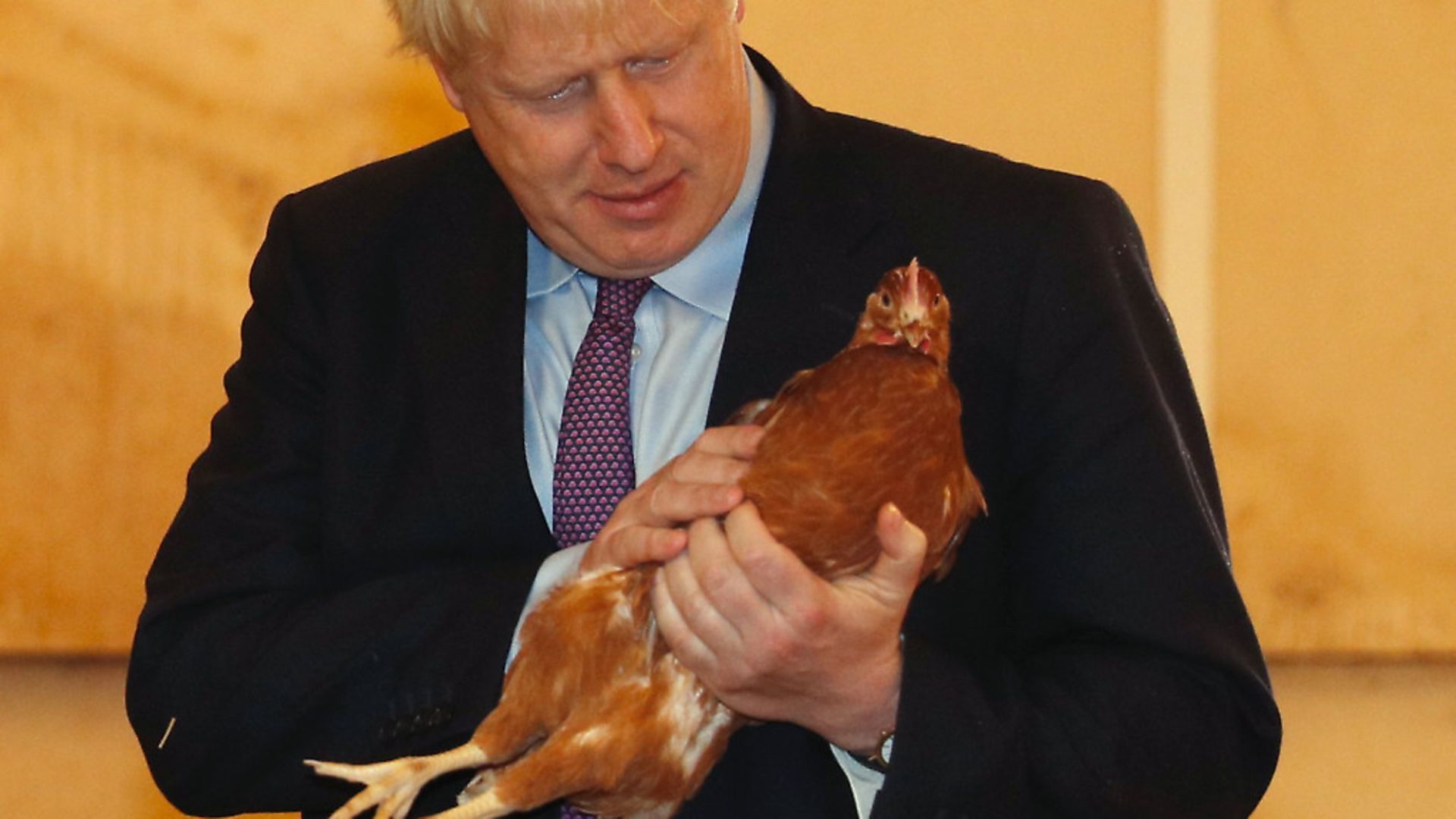
Boris Johnson’s hopes of a trade deal with the US hang in the balance after peers threatened to kybosh legislation allowing the import of chlorinated chicken and hormone-fed beef into the UK.
Peers are preparing to holt legislation that would amount to a watering down of UK food and animal welfare standards, one former government adviser has told The Independent.
In an attempt to stop minister selling the country ‘down the river’, peers are proposing amendments to the Agriculture Bill that would strengthen a food standards advisory body and allow it to ban certain food stock coming into the UK.
‘We are all confident that our amendments will go through,’ said Baroness McIntosh, a Tory peer and former shadow minister.
The rebellion is being led by Lord Curry of Kirkharle, who carried out a landmark policy review on farming and food in 2002.
‘They want to leave their options open, they don’t want to have their hands tied – that’s the bottom line,’ he warned.
‘We don’t want our food supply undermined by imported food from countries with poorer animal welfare standards, selling our food production down the river by negotiating cheap deals.’
The US has repeatedly said the unrestricted flow of its low-quality agricultural goods must be part of any future trade deal with Britain – a point honed in by US secretary of state Mike Pompeo during a visit in January.
This prompted international trade secretary Liz Truss to propose lifting a ban on chlorinated chicken and hormone-fed beef, the paper reported.
But fears a loosening of restrictions threaten to undermine the UK’s food safety standards have swelled since news of a trade deal became more evident and led to consumer watchdog Which? to brand it the greatest risk to UK food safety since the mad cow disease 20 years ago.
In May, 18 Tory MPs unsuccessfully staged a revolt to impose stricter legal standards. Now peers are pushing for the Agricultural Commission to be granted sweeping new powers to enforce food blockades on producers not meeting UK standards.
Up until now, the Commission was merely an advisory body which operated for only six months.
The new bill would give the Commission a four-year life-span, make it independent of the Department of Trade, and require its sign-off on any future trade deals.
According to Baroness McIntosh, without the amendments ministers could bypass standards by introducing new regulations that do not require parliamentary scrutiny.
‘There is an absolute need for this, so the government can’t change food safety or animal welfare standards at the stroke of a pen,’ she said.
‘Consumers want to see these high standards in place and farmers want to know that if they meet these high standards – which they are willing to do – they are not going to be undercut.’
Labour’s Lord Grantchester, who will push for an outright block on lowering standards, said: ‘The government claims to have taken on the concerns of parliamentarians – as well as supermarkets and consumers – by establishing a new commission.
‘But it is toothless, will only exist for a few months, and has no powers to stop the import of inferior products.’
But a government spokesperson said: ‘Our manifesto commitment could not be clearer – we will not compromise on our high environmental protection, animal welfare and food standards.
‘It is illegal to import chlorine-washed chicken and hormone-fed beef into the UK and any changes would require new legislation to be brought before this parliament.
‘We remain focused on getting a deal that works in the best interests of our farmers and consumers.’
Warning: Illegal string offset 'link_id' in /mnt/storage/stage/www/wp-includes/bookmark.php on line 357
Notice: Trying to get property 'link_id' of non-object in /mnt/storage/stage/www/wp-includes/bookmark.php on line 37






